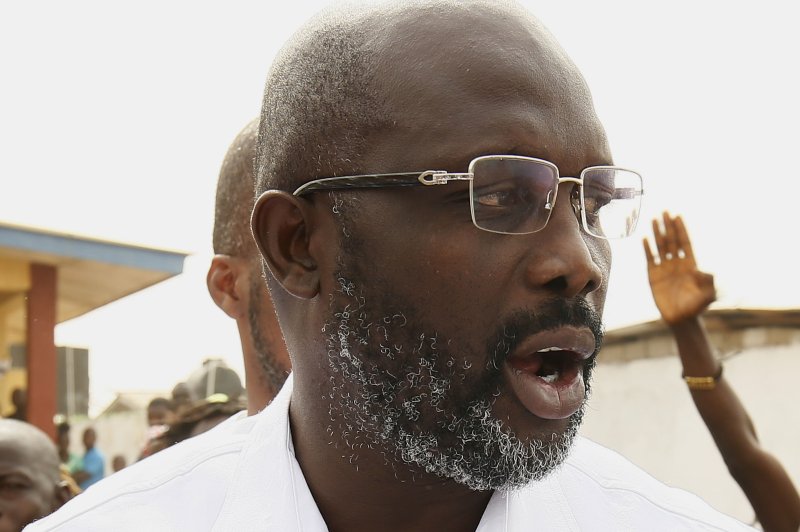1 of 2 | Liberian presidential candidate George Weah leaves a polling station Tuesday after casting his ballot in presidential elections run-off in Monrovia, Liberia. Photo by Ahmed Jallanzo/EPA
Dec. 26 (UPI) -- Liberian voters went to the polls Tuesday to choose between a vice president or former soccer player as their new president.
The west African nation will have one democratically elected government hand over power to another for the first time in more than 70 years.
George Weah, the 51-year-old senator and former football star with AC Milan, and Vice President Joseph Boakai, 73, finished first and second in the first round of voting in October.
Neither of the two candidates had the necessary 51 percent in the October election, which prompted the runoff, which was delayed from Nov. 7 because of legal challenges.
The third-place finisher in the race, the Liberty Party's Charles Brumskine, challenged the results, saying there was "massive fraud and irregularities" in the election.
Earlier this month, the Liberian Supreme Court ruled that evidence of fraud was insufficient to throw out the results of the first round.
Boakai then challenged the results because the voters roll had not been cleaned up as ordered by the Supreme Court.
Last week, the Supreme Court ruled the elections would proceed.
Because elections must take place on a Tuesday before the end of December, the day after Christmas was chosen in the Christian-majority nation of 4.6 million people. More than 2 million people are eligible to vote.
Boakai, who heads the governing Unity party, said after casting his vote, "This is a great day because it is a test of democracy."
Weah heads the Coalition for Democratic Change.
Sirleaf noted the election process has been violence-free electoral process. "The ballot box has replaced bullets and electoral disputes are settled through the courts," she said.
She a joint recipient for the Nobel Peace Prize in 2011 for her "non-violent struggle for the safety of women and for women's rights to full participation in peace-building work. Liberia's two civil wars lasted 14 years before ending in 2003.
Sirleaf's predecessor, Charles Taylor, was forced from power by rebels in 2003. He is serving a 50-year prison sentence in the Great Britain for war crimes related to the conflict in neighboring Sierra Leone.















